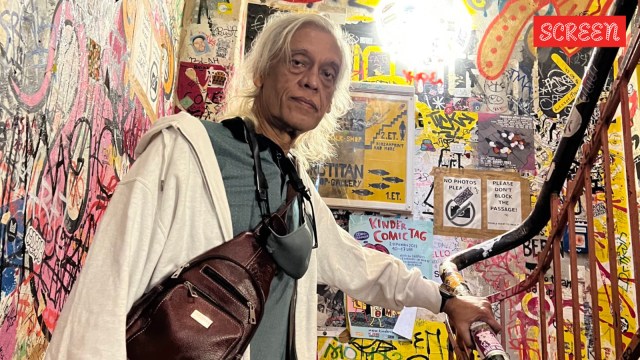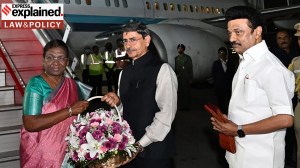Click here to follow Screen Digital on YouTube and stay updated with the latest from the world of cinema.
‘Filmmaking is thriving in the hands of young filmmakers like Payal Kapadia, Kiran Rao’: Sudhir Mishra
Acclaimed filmmaker Sudhir Mishra stresses the significance of young filmmakers taking the reins to craft compelling narratives, unencumbered by the repression of freedom of expression that pervades multiple mediums.
 Sudhir Mishra's Tanaav 2 is streaming on Sony Liv. (Photo: Sudhir Mishra/ X)
Sudhir Mishra's Tanaav 2 is streaming on Sony Liv. (Photo: Sudhir Mishra/ X)On the sidelines of promoting his latest project Tanaav, a web series in its second season, veteran filmmaker Sudhir Mishra had an in-depth conversation with SCREEN, sharing insights on storytelling, the significance of creative freedom and the importance of young filmmakers staying true to their artistic voice.
Many budding filmmakers look up to Mishra’s body of work celebrated for its nuanced exploration of complex social and political themes, but he acknowledged the challenges of filmmaking, describing the process as demanding and rewarding. “I’d be lying if I said I don’t feel any pressure, but this is what we do. There’s a joy in it. You’re blessed when a story comes to you—whether it’s an adaptation, an original script, or inspired by a book. That joy of creating something, stepping onto a set, or making a film outweighs the anxiety. This is what we do for a living, our passion and we are all about it,” Mishra said.
On mainstream cinema
Known for his thought-provoking and gritty storytelling, Mishra has resisted the allure of mainstream, fluff-filled cinema. When asked about the temptation to make lighter films, he said, “It’s not a conscious decision. The medium demands honesty, you can’t manipulate it. You have to submit and be. See, you can be arrogant and strut around and do whatever, but if you are not humble to the medium, it doesn’t work.”
“I’ve tried making a film like Calcutta Mail (starring Rani Mukerji, Manisha Koirala and Anil Kapoor) and failed miserably because it wasn’t true to me. My advice to young filmmakers is to do what you’re passionate about. That doesn’t mean you should be repetitive or shy away from challenging yourself,” Mishra said.
Mishra also elaborated on his choice to avoid big-ticket mainstream cinema. “Some filmmakers excel at making commercial blockbusters, but I’m not one of them. I recognised that long ago, and it’s why I’m still around. I can’t… I really like Chalti Ka Naam Gaadi (1958) but can I make it? I don’t know. Kundan Shah allowed me to work on Jaane Bhi Do Yaaro (1983), but was that a fluffy film? I don’t know. It was funny, there was a lot of sense of fun but in our own way.”
On censorship
With Tanaav’s second season currently streaming on SonyLiv, Mishra has taken a deep dive into the complexities of a psychological thriller, exploring human relationships, trauma, and the darker aspects of the human psyche. When asked if streaming platforms have become a haven for such stories, he said, “There’s no censorship—yet. But I’m not a sensationalist. I make films about the world as I see it. Some people might find Tanaav offensive, and that’s fine. You have the right to be offended, but you can’t call it offensive without reason.”
Mishra recounted challenges with censors. “After the first screening of Tanaav, the censor board said they couldn’t pass it. But when I asked what they found offensive, they had no answer. I didn’t revise it because I had made exactly what I wanted to,” he said.
On new filmmakers
Mishra also shared optimism for the future of Indian cinema, particularly with the emergence of young talents. Talking about filmmakers like Payal Kapadia (All We Imagine as Light) and Kiran Rao (Laapataa Ladies), and South India filmmakers. Mishra expressed admiration for their independent voices. “There are a lot of young people, you see in the south, in the world they are in today, they are trying their best and their talent is shining. All power to them. They are making the kind of films they want to make, telling stories that they want to tell,” he said.
He also said, “I think you’ll see better films in the next two-three years. I think Indian cinema will be in a very good space. It might be in a tough space economically, but creatively, it will be in a very very good space because of the talent, not because of anything else. The genius of the Indian people is now finding expression amongst the young. Filmmaking is thriving in the hands of these young filmmakers.”


Photos


- 01
- 02
- 03
- 04
- 05






























